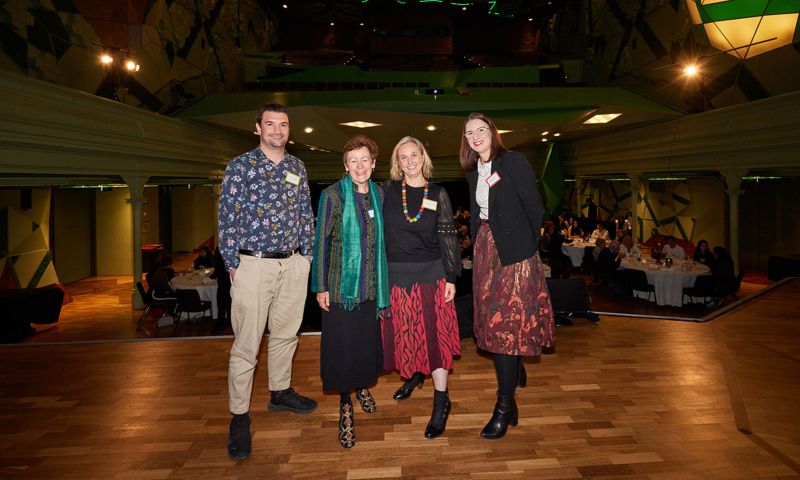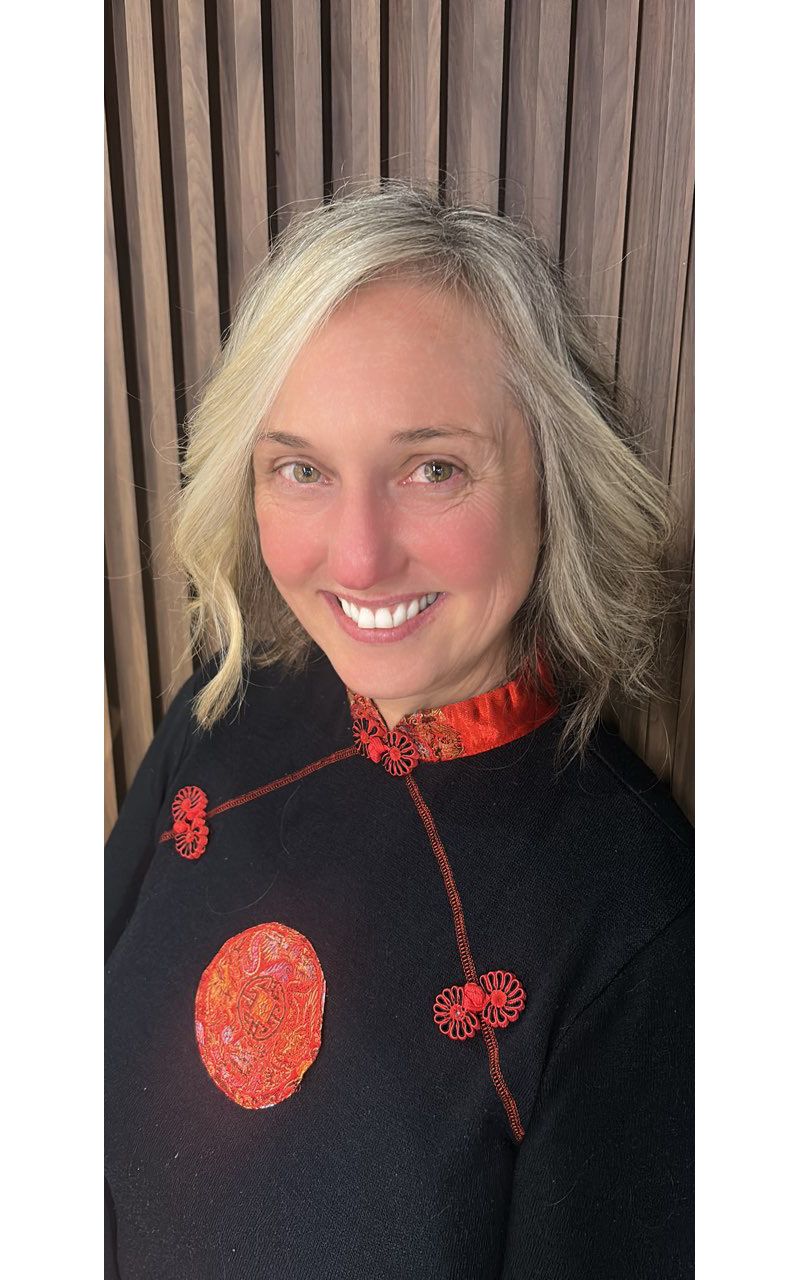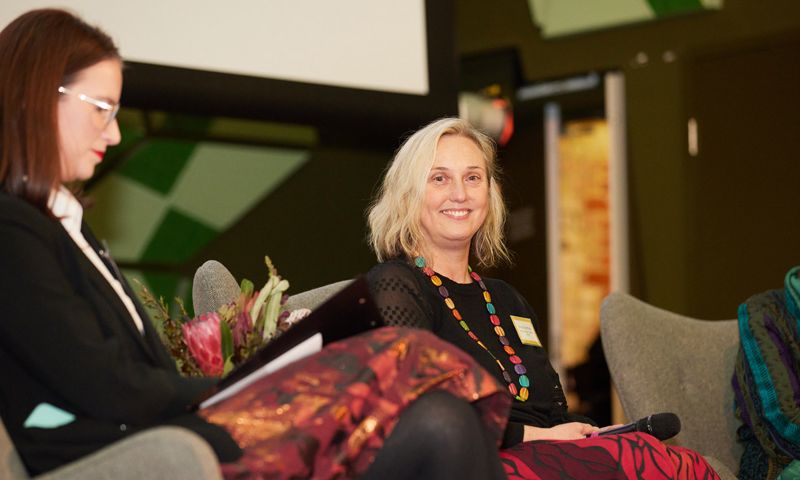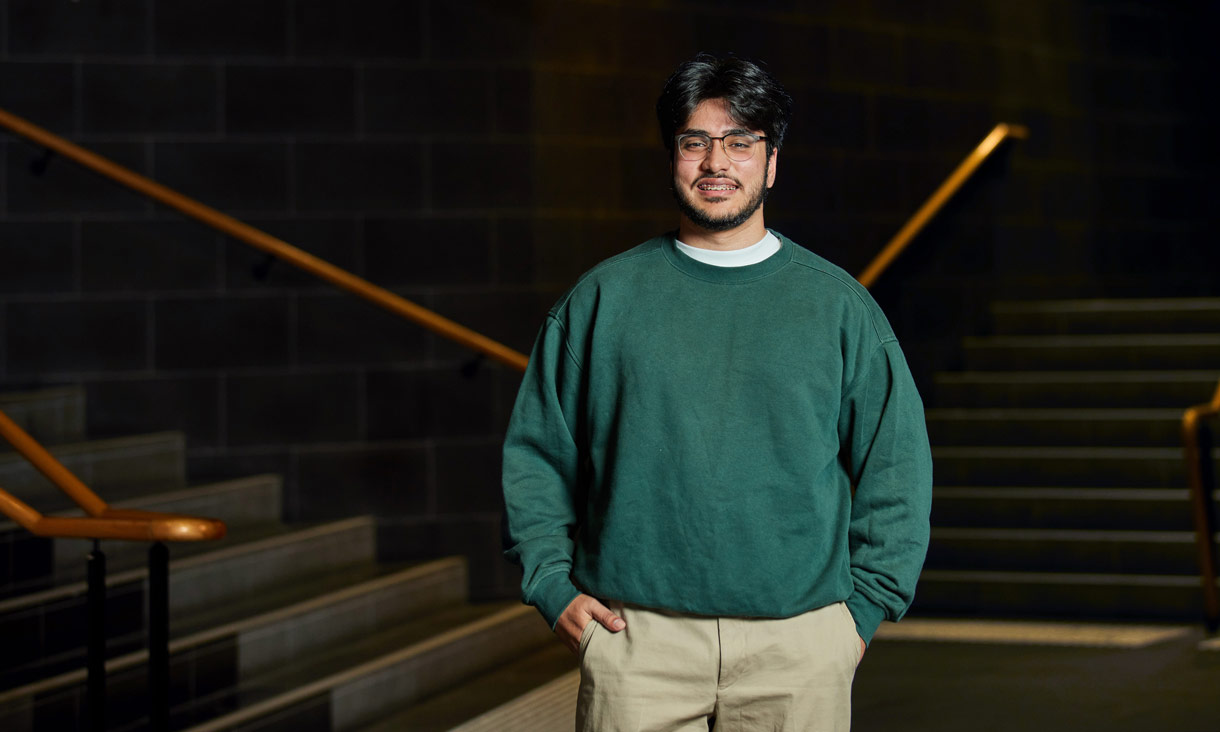A chance conversation led Brenda McKinty to put others centre stage in her career.
Brenda McKinty trained in musical theatre at the Western Australian Academy of Performing Arts and had some success in theatre and TV, including roles in Aussie favourites Neighbours and Blue Heelers.
But after separating from the father of her children, she needed something more stable than showbusiness. She relegated performance to her ‘creative outlet’ while working in unfulfilling day jobs.
She was backstage at a performance when a theatre friend, who worked at the Victorian School for the Deaf, mentioned the shortage of Auslan interpreters.
“This was just a casual conversation, one comment, and the idea just stuck,” she said.
Although Brenda had had some exposure to Auslan – her mum had learned it for her own interest many years before – until that point, she’d never considered it as a potential career.

I was looking for something that was meaningful and that was going to give back to the community. I needed to be in service of others. And I thought, I have performance skills that can translate into visual communication.
Brenda signed up for an Auslan community course and discovered she had a flair for it. She delved deeper with further study at Kangan Institute, and then came to RMIT to do a diploma in Auslan interpreting.
As she learned, she thought more about the barriers Deaf people faced, in particular, access to mental health services.
“For me, equity and equality is a big thing, especially when there is social injustice,” she said. “I was thinking about how we can redress some of this imbalance.”
The idea of studying psychology stuck in Brenda’s head, just as the idea of learning Auslan had earlier. At the time there were few psychologists in Victoria who could communicate with Deaf clients using Auslan at an appropriate level.
She applied for the Bachelor of Social Science (Psychology) at RMIT, which appealed to her sense of social inclusion. But her joy at being accepted quickly turned to concern.
It was the second semester when it became very apparent that this was not actually financially feasible,” she said. “I didn’t want to give up my studies but I had children to raise and of course the children had to take priority. I felt the only choice was to stop studying.

Having already abandoned her dreams of becoming a professional performer, Brenda wasn’t ready to give up again. She applied for the George Alexander Foundation Scholarship and was awarded $15,000 over two years – enough to see her through the rest of her undergraduate degree.
It was a huge relief. “It took all that pressure off, to know that I could afford rent, I could afford food, and I could still pursue what I had started,” she said.
Brenda graduated from RMIT in 2018, and after completing a Master of Clinical Psychology at La Trobe University, is now working as a psychologist supporting young people.
While she doesn’t use her Auslan regularly, it’s still in her toolkit. And she says that since she started studying, there has been a marked increase in the number of therapists who can use it to communicate with clients.
Brenda is immensely grateful to the George Alexander Foundation for the support she received, which she said was key to her success.
“It’s enabled me to have a more financially stable life – for example, I’m now living in my own home. That housing stability was never there before,” she said. “It’s not just the financial security, but the psychological security – knowing that what I was doing was worth doing makes me feel better about myself.”
Her children have also benefited. “As a mother, it enabled me to relax more and be less worried about the impact of the stress on my kids. I wasn’t worried about putting food on the table or keeping the roof over our head. I could be more present for them.
“I think being able to build a career in an area I’m passionate about has also demonstrated to them the benefits of hard work and dedication of pursuing something that’s important to you.”


Life-changing scholarships
Give to scholarships and help create life-changing opportunities for students facing barriers to education.


